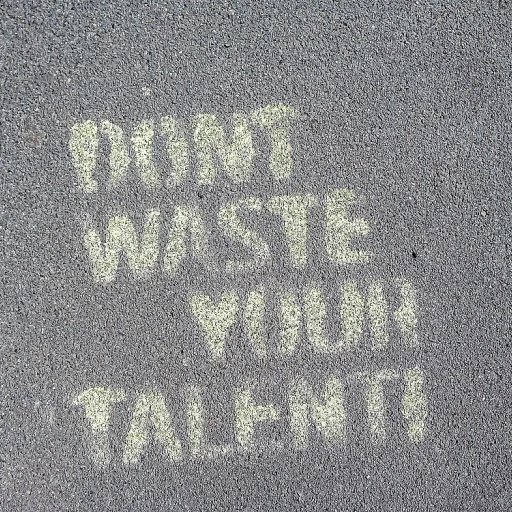
Understanding the Basics of Resume Tenses
The Role of Tenses in Resume Writing
Crafting a well-written resume is a pivotal step in your job search journey. One aspect that might seem trivial but holds great importance is choosing the appropriate verb tense. The tense you use can significantly impact how hiring managers perceive your past accomplishments and current role. Understanding resume tense is critical for clear communication and showcasing your skills effectively. When you list your work experience and highlight your achievements, the verbs should reflect a structured chronology. This helps potential employers to quickly grasp your professional history and ascertain the abilities you bring to the table. The most common confusion arises with the usage of present and past tenses. For instance, when describing your current job, it’s essential to use the present tense. This signifies actions you are performing in real-time, such as "lead a team" or "manage projects." Conversely, your previous positions and completed projects should be detailed in the past tense. This gives a clear signal that these activities are concluded, strengthening the narrative of what you've achieved. Using examples like "led a team" or "managed projects" appropriately distinguishes your past experiences from your ongoing responsibilities. Incorporating action verbs is equally important as they convey a sense of determination and effectiveness. They can transform a mundane job description into a vivid portrayal of your capabilities. Particularly for those seeking remote roles, showcasing autonomy and proactive skills is crucial in a tense resume. For more insights on enhancing your remote work skill set, you may explore resources on mastering skills for remote work success. Maintaining consistent tense usage and clarity is not only expected but also appreciated by hiring managers, improving the readability and impact of your resumes.Present Tense for Current Roles
Utilizing Present Tense for Ongoing Responsibilities
In your resume, using the present tense to describe your current role and ongoing responsibilities is crucial. This tense effectively conveys that you are actively engaged in these duties, providing a clear picture to hiring managers of what you currently accomplish in your position. It's important to focus on your key skills and accomplishments that define your role, using strong action verbs to illustrate your contributions.
Consider the verbs you choose to describe your work duties. For instance, instead of saying "work on strategies," specify with verbs like "implement" or "lead." These demonstrate initiative and leadership, traits valued by employers. Moreover, ensuring consistency in verb tenses across similar statements throughout your resume enhances readability and coherence.
- Use active voice and strong verbs: "Manage a team," "Develop processes," "Oversee projects," "Execute plans."
- Highlight achievements: Rather than saying "doing the job," share measurable achievements like "increase team productivity by 30%."
Your resume is more impactful when it is easy to read and clearly organized around your current job. When describing these roles, always remember your audience is looking for evidence of your ability to perform and contribute positively, so articulate your work experience effectively.
For further insights into exploring opportunities in remote contract work, be sure to check out related content that dives into potential areas where you can excel in remote work contexts.
Past Tense for Previous Experiences
Crafting Past Tense for Prior Experiences
When detailing your past work experiences in a resume, using past tense verbs is crucial. Describing your accomplishments in previous roles provides hiring managers with a clear picture of what you've achieved, ensuring they can evaluate your previous positions effectively. This choice of verb tense is straightforward for describing completed tasks and projects, ensuring that your resume reads professionally and with clarity.
Consider some examples when writing accomplishments:
- Implemented a new billing system that reduced processing time by 30%.
- Led a team of five on successful project completion under a tight deadline.
- Managed a portfolio of high-profile clients, ensuring customer satisfaction.
Consistent use of past tense in your resume writing is essential for maintaining the narrative flow and demonstrates your ability to reflect on previous work. Highlighting your achievements using verbs like 'completed,' 'developed,' or 'enhanced' effectively showcases your skills in past situations. In this way, a potential employer can easily discern your past responsibilities and contributions.
As you continue your resume review, remember to adapt these principles for transition into the specifics of remote work skills, particularly if your previous experience involves this dynamic. Further insights on adapting tense for such positions can also be explored through exploring remote career opportunities with MSI Computers on remote career opportunities.
Common Mistakes in Resume Tenses
Frequent Missteps When Choosing Tenses
Securing a job often hinges on the effectiveness of your resume, with the choice of tense playing a critical role in how your experiences are perceived. Yet, despite its importance, selecting the right tense is a common stumbling block for many. Let's delve into some typical errors and how to avoid them when writing your resume.
Firstly, mixing tenses within the same section or bullet point is a frequent mistake many job seekers make. This can confuse hiring managers, making it hard for them to discern your past achievements from your current roles. For example, saying "I completed projects and manage a team" blends past and present in a jarring fashion. Consistency is key—stick to the present tense for your current job while using the past tense when describing completed projects or past roles.
Another pitfall is the inappropriate use of future tense, which generally doesn’t belong in a resume. This document is about your accomplishments rather than aspirations. Therefore, avoid using future-oriented verbs like "will manage" or "will lead." Focus instead on clear action verbs that emphasize what you have achieved and are currently doing.
Moreover, overusing passive voice can dilute the impact of your experience. Active voice is more engaging and convincing. For instance, "Projects were completed under my supervision" lacks the punch of "I led the completion of projects." The latter directs the accomplishments to your skills and demonstrates initiative.
It's also worth mentioning that some job seekers tend to repeat the same verbs across different experiences, reducing the overall impact of their resume. Vary your use of verbs to better capture the diversity of your skills and experiences.
Ultimately, a meticulously crafted resume, free from these common mistakes, paves the way for a successful job search. Attention to written tense details can elevate the quality of your resume, making a stronger impression on hiring managers and ensuring clarity in your career narrative.
Adapting Tense for Remote Work Skills
Tailoring Resume Tenses for Remote Work Skills
In today's job market, the ability to showcase remote work skills effectively is critical. When writing your resume, selecting the right verb tense for highlighting these skills can make a big difference in how hiring managers perceive your qualifications.
When discussing remote work abilities you are currently utilizing, use the present tense. This includes skills like "collaborating" with a virtual team or "managing" projects remotely. Such verbal expressions communicate that you are actively engaged and capable in your current role.
For remote skills acquired from previous work experience, the past tense is more appropriate. For example, you might mention how you "completed" projects asynchronously or "converted" a traditional meeting setup into effective digital communications last year. These completed achievements can demonstrate your adaptability and successful accomplishments in various settings.
Examples of action verbs for showcasing remote work accomplishments include "facilitated," "streamlined," or "coordinated." These verbs help convey your contributions clearly in bullet points, ensuring clarity and directness.
Keenly observe consistency, ensuring that your resume remains seamless as hiring managers read through various sections. Consistent tense usage reflects a polished and professional resume review, critical for standing out in a competitive job market.
Consistency and Clarity in Resume Writing
Ensuring Consistency and Clarity
Crafting a coherent resume demands attention to detail, especially when it comes to maintaining consistency across various job entries. Whether you’re describing your current role using present tense or detailing past achievements in past tense, clarity is key. This principle not only makes your resume easier for hiring managers to read but also enhances your professional credibility.
To avoid confusion, adhere to a consistent structure for each job entry. Use bullet points to clearly outline key accomplishments and responsibilities. It’s common to see mistakes like changing tense within a single entry, which can lead to misunderstandings. By choosing a single verb tense for each position, be it your current job or a previous one, you preserve the flow and logic of your career narrative.
When describing completed projects or roles you once held, always use past tense. This applies universally across all categories of work experience, from specific achievements to a general summary of your time in a position. Conversely, for current positions, consistently use present tense. Consider employing strong action verbs at the beginning of each bullet point to effectively demonstrate your impact.
In situations where your skills were developed in a remote or hybrid setting, employ tense strategically to highlight both independent initiatives and collaborative team efforts.
Moreover, ensure that your resume is free from grammatical errors and awkward phrasings, as these can undermine your perceived attention to detail. Committing to a thorough resume review process, possibly with feedback from peers, will help achieve a polished document that stands out.













